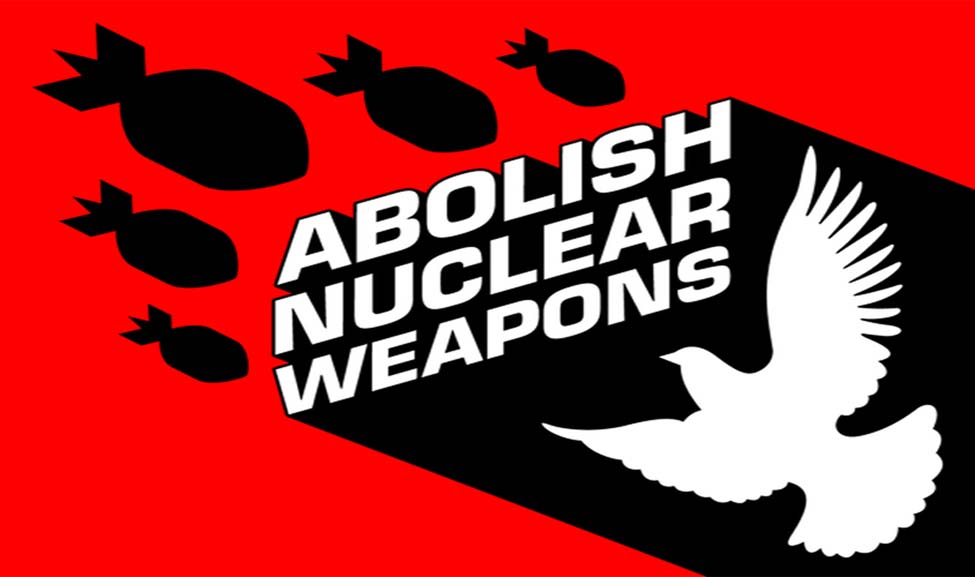
Superpowers Release Rare Joint Statement
Andrey Ostroukh / The Sydney Morning Herald & International Physicians for the Prevention of Nuclear War
MOSCOW (January 4, 2022) — China, Russia, the UK, the United States and France have agreed that a further spread of nuclear arms and a nuclear war should be avoided.
According to a joint statement released on Tuesday morning (AEDT), the five countries – permanent members of the United Nations Security Council – said they considered it their primary responsibility to avoid war between the nuclear states and to reduce strategic risks, while aiming to work to create an atmosphere of security
“We declare there could be no winners in a nuclear war, it should never be started,” the Russian-language version of the statement read.
An English-language version was released by the White House. [See below — EAW]
“We affirm that a nuclear war cannot be won and must never be fought,” the statement reads. “We also affirm that nuclear weapons – for as long as they continue to exist – should serve defensive purposes, deter aggression and prevent war. We believe strongly that the further spread of such weapons must be prevented.”
The statement goes on to discuss the importance of addressing nuclear threats and of preserving and complying with non-proliferation, disarmament and arms control agreements.
“We each intend to maintain and further strengthen our national measures to prevent unauthorised or unintended use of nuclear weapons,” the statement reads.
“We underline our desire to work with all states to create a security environment more conducive to progress on disarmament with the ultimate goal of a world without nuclear weapons with undiminished security for all.”
France also released the statement, underscoring that the five powers reiterated their determination for nuclear arms control and disarmament. They would continue bilateral and multilateral approaches to nuclear arms control, it said.
The declaration comes despite a UN decision last week to postpone a key arms-control meeting in New York – originally scheduled for February – due to rising COVID-19 infections.
Diplomats had been scheduled to meet to review the nuclear Non-Proliferation Treaty, the 1970 accord designed to limit the spread of atomic arms.
Under the accord, China, Russia, the UK, the United States and France were all granted dispensations to maintain stockpiles as long as they continued working towards the eventual elimination of nuclear weapons.
The urgency to reduce the risks posed by weapons of mass destruction has come into greater focus amid recent talks designed to lower tensions between the White House and the Kremlin, which administer the world’s biggest nuclear arsenals. The two adversaries are spending billions of dollars to modernise weapons systems, even as they occasionally work together to stem proliferation of weapons technologies.
The statement comes amid increased geopolitical tensions between Moscow and NATO countries over concerns about Russia’s military build-up near neighbouring Ukraine. Moscow says it can move its army around its own territory as it deems necessary.
Last Thursday US President Joe Biden told his Russian counterpart Vladimir Putin that a possible move on Ukraine would draw sanctions and increased US presence in Europe.

Joint Statement of the Leaders of
the Five Nuclear-Weapon States on
Preventing Nuclear War and Avoiding Arms Races
(January 3, 2022) — The People’s Republic of China, the French Republic, the Russian Federation, the United Kingdom of Great Britain and Northern Ireland, and the United States of America consider the avoidance of war between Nuclear-Weapon States and the reduction of strategic risks as our foremost responsibilities.
We affirm that a nuclear war cannot be won and must never be fought. As nuclear use would have far-reaching consequences, we also affirm that nuclear weapons — for as long as they continue to exist — should serve defensive purposes, deter aggression, and prevent war.
We believe strongly that the further spread of such weapons must be prevented.
We reaffirm the importance of addressing nuclear threats and emphasize the importance of preserving and complying with our bilateral and multilateral non-proliferation, disarmament, and arms control agreements and commitments.
We remain committed to our Nuclear Non-Proliferation Treaty (NPT) obligations, including our Article VI obligation “to pursue negotiations in good faith on effective measures relating to cessation of the nuclear arms race at an early date and to nuclear disarmament, and on a treaty on general and complete disarmament under strict and effective international control.”
We each intend to maintain and further strengthen our national measures to prevent unauthorized or unintended use of nuclear weapons.
We reiterate the validity of our previous statements on de-targeting, reaffirming that none of our nuclear weapons are targeted at each other or at any other State.
We underline our desire to work with all states to create a security environment more conducive to progress on disarmament with the ultimate goal of a world without nuclear weapons with undiminished security for all.
We intend to continue seeking bilateral and multilateral diplomatic approaches to avoid military confrontations, strengthen stability and predictability, increase mutual understanding and confidence, and prevent an arms race that would benefit none and endanger all.
We are resolved to pursue constructive dialogue with mutual respect and acknowledgment of each other’s security interests and concerns.